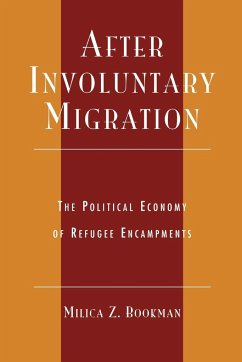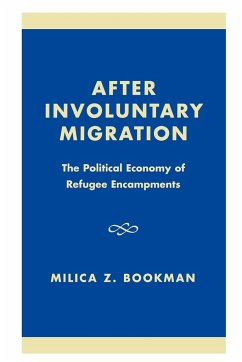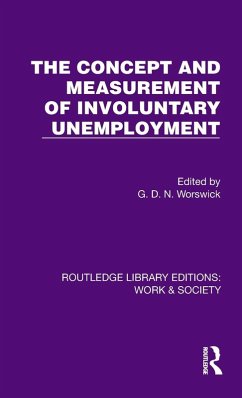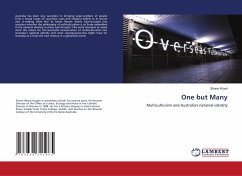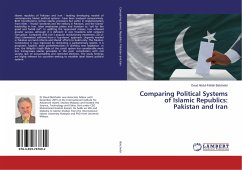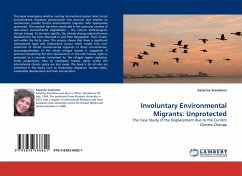
Involuntary Environmental Migrants: Unprotected
The Case Study of the Displacement due to the Current Climate Change
Versandkostenfrei!
Versandfertig in 6-10 Tagen
32,99 €
inkl. MwSt.

PAYBACK Punkte
16 °P sammeln!
This book investigates whether existing international system takes forced environmental migration phenomenon into account, and whether its mechanisms provide forced environmental migrants with appropriate protection. The research has been conducted in the particular context of slow-onset environmental degradation the current anthropogenic climate change. To be more specific, the climate change-induced human displacement has been observed in and from Bangladesh, from Tuvalu, and within the Arctic zone. The enquiry shows that there is significant international legal and institutional lacuna whic...
This book investigates whether existing international system takes forced environmental migration phenomenon into account, and whether its mechanisms provide forced environmental migrants with appropriate protection. The research has been conducted in the particular context of slow-onset environmental degradation the current anthropogenic climate change. To be more specific, the climate change-induced human displacement has been observed in and from Bangladesh, from Tuvalu, and within the Arctic zone. The enquiry shows that there is significant international legal and institutional lacuna which results into non-protection of forced environmental migrants. In these circumstances, reconceptualisation of the whole refugee system is suggested. A protocol broadening the term "persecution" in line with human rights is proposed as a concrete instrument for the refugee regime updating. Some propositions how to emphasise human rights within the international climate policy are also made. The book is for all who are interested in the topics such as involuntary migration, human rights, sustainable development and their intersections.



